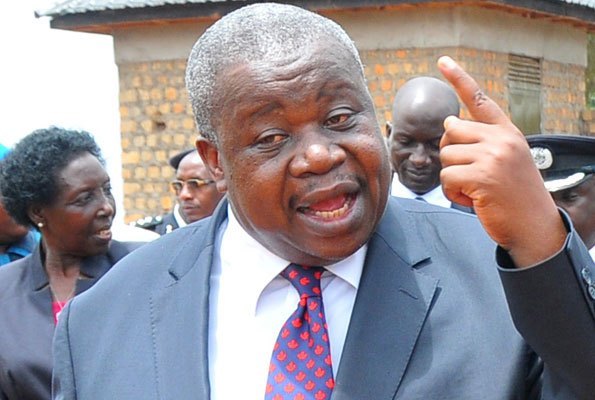Up to 100 million Shillings is spent by Uganda Revenue Authority-URA every after six months to destroy contraband cigarettes.
Geoffrey Okaka, the acting Assistant Commissioner for Customs, revealed this while receiving the Hammer mill, which is used for destroying Tobacco from the British American Tobacco company, BAT.
He says that “The Hummer mill machine will help the authority save the 100 million cost just for the destruction of commodities from illegal trade. We now pray that NEMA allows us to destroy it from here, such that we don’t incur transport costs to Nakasongola since the machine is here now.”
The tobacco control act 2015, permits the authority to destroy any cigarette seized from illicit trade practices. It is estimated that the government loses approximately Shillings 30 billion annually to the Illicit cigarette trade.
Data from the Uganda Revenue Authority, indicate that between 2019 to 2022, up to 33 million sticks of cigarettes were seized and destroyed at the Nakasongola incineration facility.
Okaka says that the cigarette seized from all corners of the country in the last three years amounted to more than 1 billion Shillings, and supermatch was the major brand.
“Between 2019 to 2022, the URA enforcement teams in Kampala, Elegu, Arua, Madi Opei, Pakwach, Corner Kamdini, and other remote stations relying on the intelligence-led focused operations model seized more than 293,099 cartons of illicit cigarettes valued at USD 340,000 or UGX 1,219,920,000. The major brand intercepted was Super match made in Uganda for export contributing to more than 90% of the seized cigarettes. Others include high-end brands like Oris, Dunhill, Business Royal, and Sportsman,” he said.
He says that the seized cigarette is collected in the URA warehouse, and destroyed within six months. The major sources of contraband cigarettes are South Sudan and DR Congo.
A 3rd third-party research report by Kantar for BAT Uganda shows that 27.5% of the cigarettes sold in Uganda are illicit. Of this 56% is manufactured in Uganda for export, with the rest being manufactured in other countries before being smuggled into the country.
URN has also established that BAT, the leading trader of cigarettes in Uganda, recorded a 41% drop in tax remittances to URA from UGX 82.76 billion in 2020 to UGX 48.64 billion.
This is attributed to the illicit trade in the cigarette business. URA says it maintains a non-tolerance approach to smuggling by regularly carrying out sweeping and intelligence-led operations.
They have also adopted a purposive initiative to combat the illicit cigarette trade by collaborating with legitimate industry players like BAT to protect the Ugandan market.
Mathu Kiunjuri, the managing director of BAT Uganda, says that the tobacco industry has grappled with the illicit cigarette trade problem for many years.
“This year’s illicit cigarette trade incidence of 27.5% is a spike from 23.8% in 2021 which was an increase of 54.5% compared to September 2020 when the number stood at 15.4%. The biggest concern for our industry relates to tax-evaded cigarettes bearing fake tax stamps or no tax stamps at all,” he said.
According to Kiujuri, these products also do not bear the prescribed graphic health warnings on their packaging in contravention of the Tobacco Control Regulations, 2019 (TCR).
“We wish to reiterate our commitment to work transparently with the relevant authorities to combat illicit cigarette trade. Therefore, the opportunity to donate the Hammer mill to Uganda Revenue Authority to aid with enforcement against illicit cigarette trade is an honor for us and a testament to this commitment,” he said.
Thaddeus Musoke Naggenda, the chairperson of Kampala City Trader’s Association-KACITA, said that as leaders in the business fraternity, they will not give up on sensitizing traders on good trade practices, saying illicit trade is expensive in the long run;

















